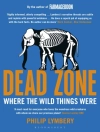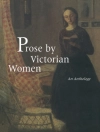With typical rhetorical flourish and beholden to paradox, Roland Barthes defines his work on ‘myth’ as an attempt to ‘define things’; and yet he is known foremost for his work on language. The aim of this book is to take ‘things’ here as social relations, objects and other human beings with which the self interacts. It does so via language. And language in Barthes’s conception is double: alienating, alienated on the one side; liberating, inspiring on the other. It is this double that we investigate in this book: A spectre is haunting Barthes studies, the spectre of dialectics; and the spectral presence of dialectics is what we will define in this book as the Barthesian ‘spirit’, in both senses of the word, that is, haunting his analyses and, at once, providing us with a double approach. ‘I have tried to define things, not words’ (Barthes 2009, 131n1).
Tabela de Conteúdo
Acknowledgements; Foreword; Chapter One ‘The dialectical logic of Love’; Chapter Two ‘Amorous dialectic’; Chapter Three ‘The People chorus’; Chapter Four ‘Double grasp’; Chapter Five ‘Stereographic space’; Chapter Six ‘Non-classifiable’; Chapter Seven ‘New Dialectic’; Chapter Eight ‘Opacity’; Chapter Nine ‘Undialectics’; Afterword: Essayism and the Politics of Writing; Bibliography; Index
Sobre o autor
Renowned specialist of Roland Barthes, Andy Stafford has co-edited Barthes’s 1968–1969 seminar notes on Sarrasine. His work on Barthes is translated into Chinese, French and Portuguese.












